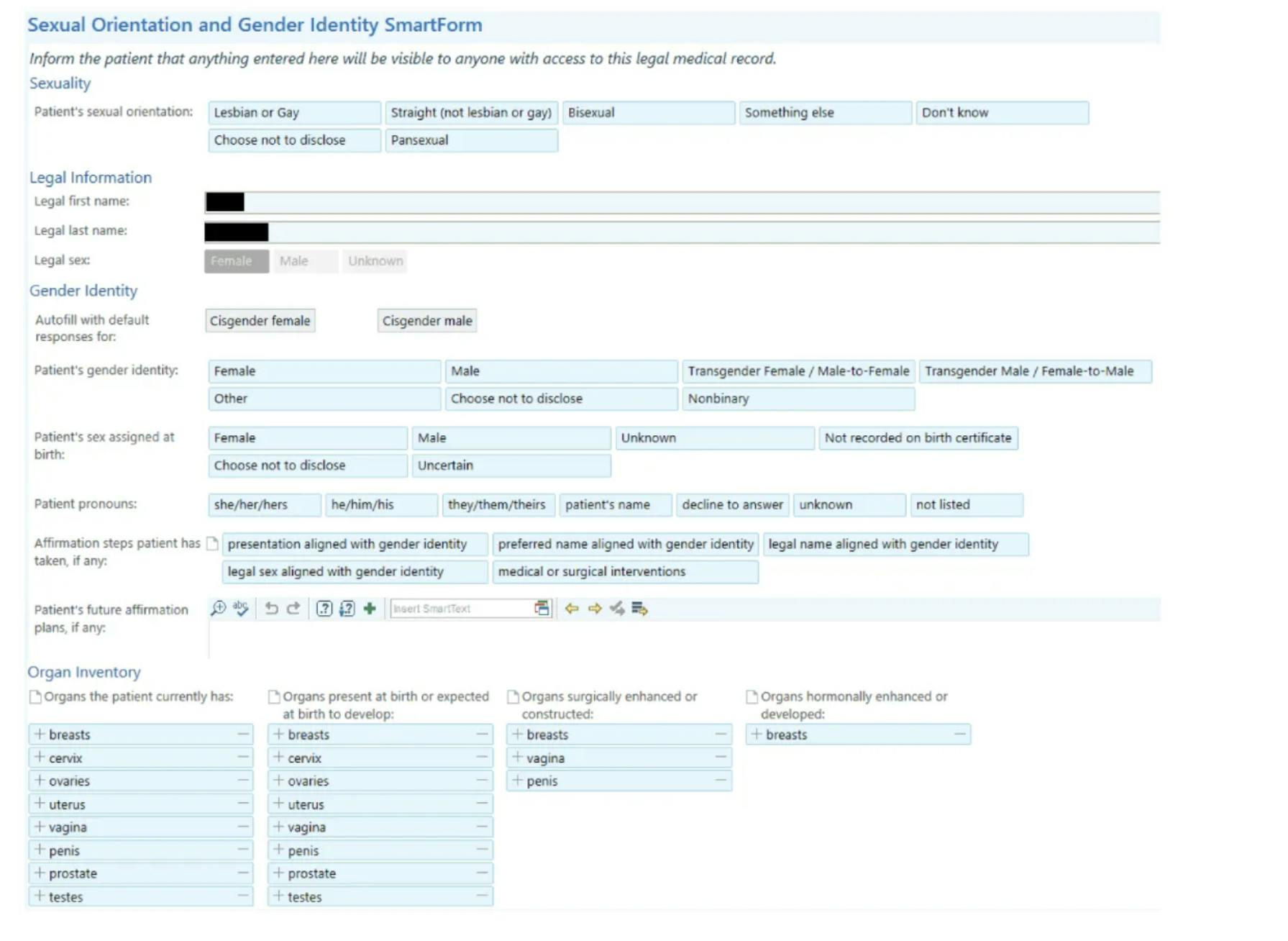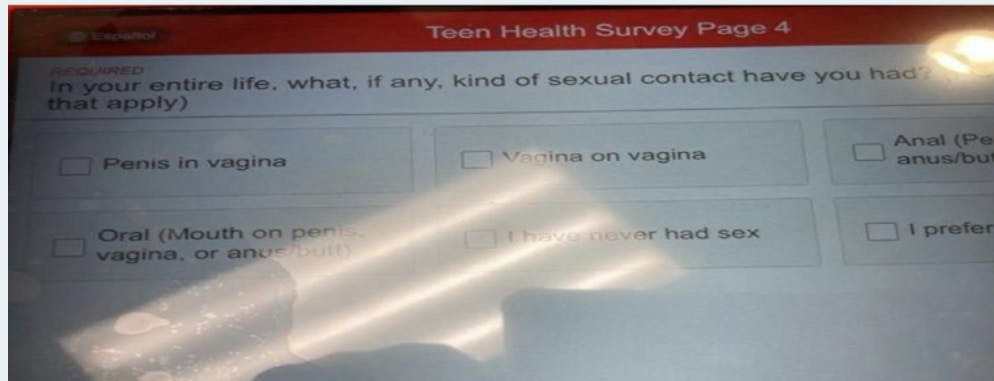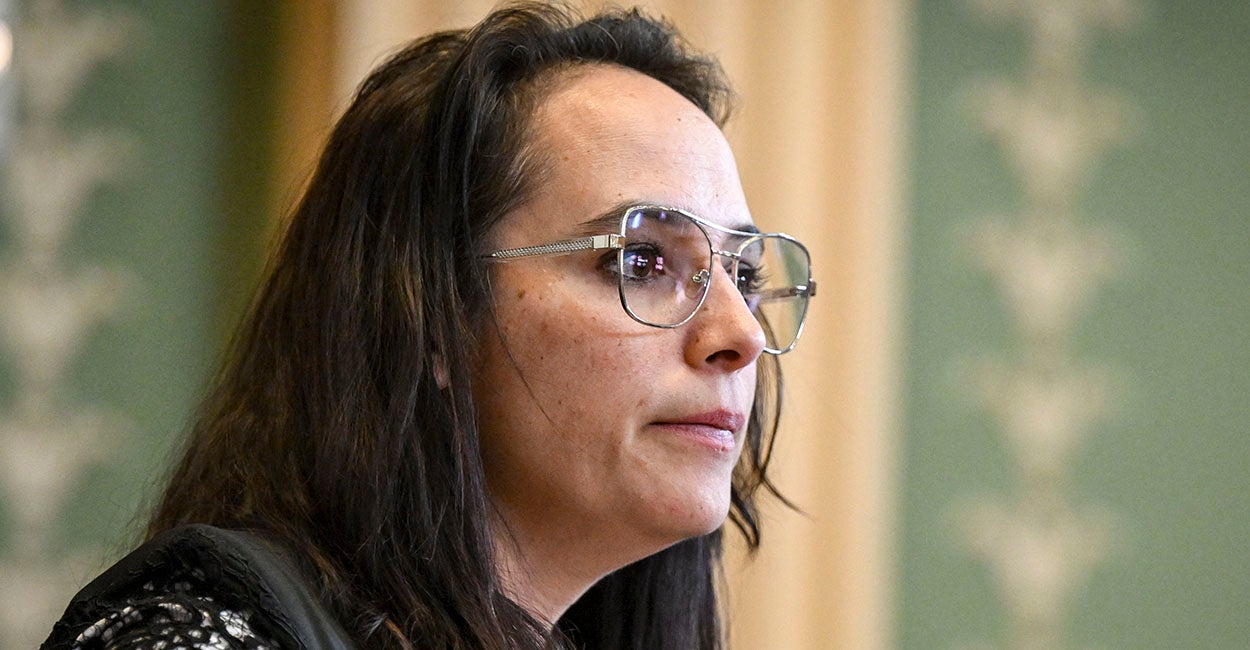How Doctors Exploit Privacy Laws To Push Transgenderism On Kids

Medical professionals are exploiting medical records and privacy laws to push children into transgenderism without their parents’ knowledge, a watchdog organization warned Tuesday.
Live Your Best Retirement
Fun • Funds • Fitness • Freedom
A new report from Do No Harm first obtained by The Daily Wire says that parents can be kept in the dark about whether their children are undergoing transgender procedures and treatments under the guise of medical privacy. This is especially worrisome, the report notes, because the two companies responsible for the majority of electronic medical records in the United States have embraced transgender ideology.”
“Confidentiality regulations are being used to hide aspects of pediatric medical transition, such as social transitioning and preferred pronouns of the child, as well as medications, from parents and guardians,” Do No Harm’s Michelle Havrilla writes.
Do No Harm says that the risk stems from hospitals interpreting federal and state health privacy laws to deny parents access to their child’s medical records once they turn 13. HIPAA — the federal law that mandates medical records be kept private — was meant to maintain parents’ access to their children’s medical records. Traditionally, HIPAA has only been used to conceal minors’ medical treatments from their parents in instances where it encouraged minors to seek treatment, for things like substance abuse and STDs.
Now, providers are exploiting those exceptions to hide information about transgender procedures, Do No Harm warns.
“It appears that healthcare systems are using sexually transmitted infections, mental health concerns, and drug and alcohol exceptions to remove parental access to their child’s entire medical record – well beyond the limits of the law,” Havrilla wrote.
At Lakeland Regional Health in Florida, parental proxy access to medical records goes away at the age of 13. At age 13, the child has to call the system and authorize parental access to their medical records.

At the same time, companies like Epic and Oracle Health have enabled hospitals to incorporate questions about gender identity into their patient systems, Do No Harm says. Epic and Oracle control over 60% of the electronic medical record industry in the United States.
Electronic medical records dictate “how physicians, nurses, deliver care from implementing clinical practice guidelines to methods used for billing and documentation,” Do No Harm medical director Kurt Miceli says.
Epic boasts on its website about creating “more inclusive care for transgender patients.” It says that it has assisted its clients in incorporating “questions about patients’ preferred pronouns, sex assigned at birth, and gender identity into each patient’s chart in Epic.”
“The information a patient provides in response to these prompts can give providers a more nuanced understanding of a patient’s sex, gender identity, and healthcare needs, helping to prevent unwarranted assumptions and improve care,” Epic says. “For example, a transgender patient’s sex assigned at birth—along with the patient’s current anatomy — might inform clinical decisions, while their legal sex might be relevant to identifying them in billing workflows.”
The University of Pittsburgh Medical Center appears to use a Sexual Orientation and Gender Identity SmartForm developed by Epic, according to a screenshot posted by an LGBT advocacy group.
The form asks a patient to fill in their gender identity and takes an organ inventory where it can be designated what genitalia the patient has or what faux genitalia have been constructed.

Epic notes that parents using its MyChart software may not have access to their child’s records because “proxy access to a child’s account changes as they get older.”
“Because each organization has their own interpretation of federal legislation that guarantees privacy rights to adolescents, each organization determines the ages at which proxy access might become limited or removed,” the group writes.
An Epic spokesman told The Daily Wire that the company designs its software to comply with state law, and that health systems determine the format of electronic health records.
“Each healthcare organization configures Epic’s software to align with its specific needs, including compliance with state and local laws. This includes settings for proxy access and documentation in children’s medical records. These decisions are determined by each organization, not by Epic,” the spokesman said.
Oracle also pushes for “more inclusive” electronic health records and encourages organizations to “advance gender-affirming health care.” This includes the promotion of adding gender identity, “sex assigned at birth,” and pronouns to electronic health records charts.
The company also highlights how 13 is the default age at which parents are restricted from viewing the vital signs and results of minor patients.
“When a minor reaches the protected status age, an option becomes available to them from the Settings menu in the Patient Portal, and they can select what category of information they want to restrict. When a proxy tries to access restricted information, they receive an error message,” Oracle notes.
Other health systems that keep parents in the dark include Wellstar Health System in Georgia, which limits parents’ access to their children’s health records after age 12. The child must authorize access for parents to get a full picture of what is going on with their health care.
“While these institutions make a questionable attempt to be transparent with their proxy access policies, the concept of allowing a 13-year-old decision-making capacity is counter to what we understand about a developing adolescent brain,” Havrilla writes. “Adolescents simply do not have the cognitive capacity to make these difficult decisions.”
Miceli says that Do No Harm’s report is a call for both electronic health record platforms and health systems to put patients over ideology.
“When you’re dealing with a child, it’s the child, as well as their parent or guardian who is going to help them, support them, and guide them through,” he told The Daily Wire. “That’s the key message to underscore the importance of what is truly patient centered in this regard.”
Some health systems are reportedly already surveying young patients about their “gender identities.”
Do No Harm included screenshots from a survey reportedly given to a 13-year-old emergency room patient at Children’s National Hospital in Washington, D.C.
According to screenshots, the survey included questions like “What sex were you assigned at birth, on your original birth certificate?” and “In your entire life, what, if any kind of sexual contact have you had?” with the options “Penis in vagina; Vagina on vagina; Anal; Oral; I have never had sex; I prefer not to answer.”

Parents in Oregon and Florida were asked to fill out surveys about gender identity and sexual preferences for children as young as one.
“What’s concerning is that these identity focused questions are being introduced at an age when children are developing basic sense of self awareness, prompting confusion and promoting an ideology,” Havrilla said. “A pediatric visit should prioritize medical care, not an ideological exploration.”
The push for extreme privacy has in part come from groups like the Society for Adolescent Health and Medicine, which contends that “the design, implementation, and use of [electronic health records] need to take into account the special needs of adolescents for access to health information and the vigorous protection of confidentiality.”
One of the authors of that position is Dr. Ryan Pasternak, an advocate of transgender procedures for gender-confused children.
“Ensuring access to confidential care can be really a serious safety issue for some adolescent patients, just depending on how their parents feel about some of the behaviors that they might be engaging in,” Pasternak said on a podcast while discussing “confidential” health care for young people.
Instead of pushing for more restrictions on what parents can know, Do No Harm argues that states and the federal government should step in to protect parental rights and clarify medical privacy laws.
Miceli told The Daily Wire that it was important for parents to know if their child was experiencing gender confusion so they could “have the opportunity to help their child and not allow them to continue deeper and deeper into an ideology that will only result in more harm to them.”
“Regulations and laws must be enforced to stop [electronic health records] and health systems from unlawfully denying parental access and prioritize their children’s health, and allow parents to exercise their rights and responsibilities as parents for these young minors,” Miceli says.
Originally Published at Daily Wire, Daily Signal, or The Blaze
What's Your Reaction?
 Like
0
Like
0
 Dislike
0
Dislike
0
 Love
0
Love
0
 Funny
0
Funny
0
 Angry
0
Angry
0
 Sad
0
Sad
0
 Wow
0
Wow
0
















































































